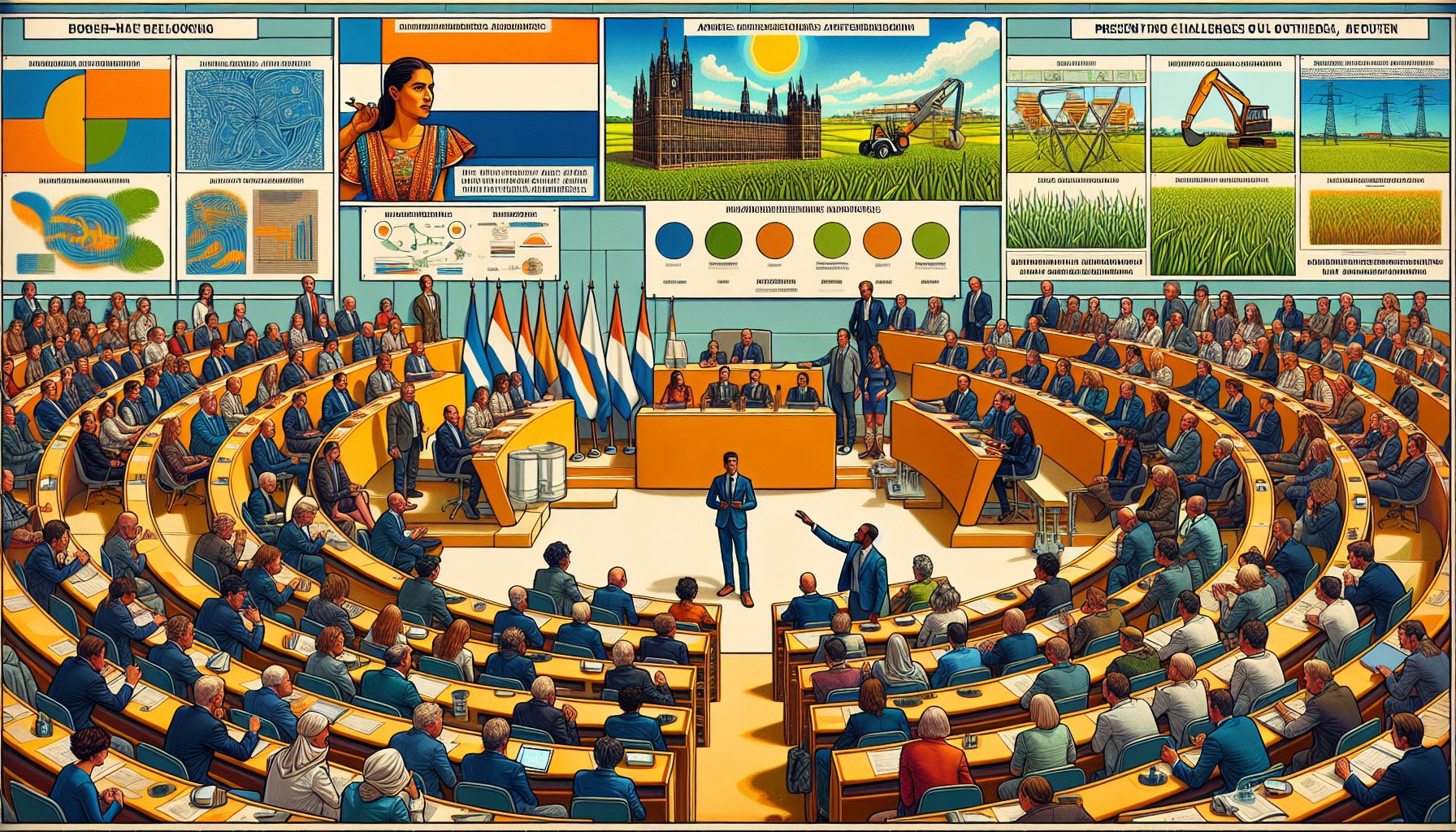Dutch Parliament Explores Agritech Innovations with Biotech Companies

The Tweede Kamer discussed agricultural technology innovations, focusing on grass refining and comparing challenges faced in the Netherlands with those in other countries.
Introduction to Agritech Innovations
The Dutch parliament’s Tweede Kamer engaged with leading biotech companies to explore innovations in agricultural technology. Key discussions centered around the potential of grass refining and the challenges faced in the Netherlands compared to other countries. This news item focuses on agritech, a segment of technology designed to improve the efficiency and output of agricultural processes.
Grass Refining: A Sustainable Solution
One of the prominent innovations discussed was grass refining, spearheaded by the Dutch company Grassa. Grass refining involves the extraction of plant-based proteins from grass, which can be used for both human and animal consumption. Additionally, refined grass can be fed to cows, resulting in lower nitrogen emissions. This innovation presents a sustainable solution for the dairy industry, offering a way to reduce environmental impact while maintaining high production levels.
Farmless’ Revolutionary Protein Production
Another groundbreaking innovation comes from Farmless, a Dutch company that produces proteins using only electricity, water, and air. This method eliminates the need for agricultural land, pesticides, and antibiotics. Despite its potential, Farmless faces significant challenges in securing funding for factory construction, which is crucial for scaling up production. The company highlighted the importance of financial support to give this innovation the momentum it needs.
Meatable’s Cultivated Meat
Meatable, also based in the Netherlands, is working on cultured meat as a sustainable alternative to traditional livestock farming. Cultivated meat can significantly reduce land and water usage, decrease the incidence of animal diseases, and minimize animal suffering and slaughter waste. However, Meatable faces hurdles in finding skilled personnel, gaining consumer acceptance, and scaling up production. The company organized a tasting event to assess the product’s taste before submitting its dossier to the European Food Safety Authority (EFSA) for novel food approval.
Challenges and Regulatory Hurdles
The discussions at the Tweede Kamer also highlighted the regulatory challenges faced by these innovations. The European EFSA procedure for the approval of innovative food products was emphasized as a critical factor in bringing these technologies to market. Companies like Grassa, Farmless, and Meatable must navigate these regulatory landscapes to ensure their products can be legally sold and consumed within the European Union.
Global Context: AYuTe Africa NextGen and GreenTech Amsterdam
The importance of agritech innovations is not limited to the Netherlands. Globally, initiatives like AYuTe Africa NextGen and events like GreenTech Amsterdam 2024 showcase the transformative potential of agricultural technology. AYuTe Africa NextGen, organized by Heifer International, recently awarded top agritech innovations in Africa, highlighting the role of young innovators in transforming agriculture. Similarly, GreenTech Amsterdam 2024 featured pioneering companies revolutionizing horticulture with advanced technologies.
Conclusion: A Bright Future for Agritech
The roundtable discussions at the Tweede Kamer underscore the critical role of agritech in addressing global challenges related to food production and sustainability. With continued support from governments, financial institutions, and regulatory bodies, innovations like those from Grassa, Farmless, and Meatable can pave the way for a more sustainable and efficient agricultural future.

